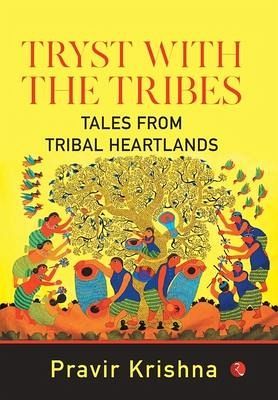
Tryst with the Tribes
Versandkostenfrei!
Versandfertig in über 4 Wochen
27,99 €
inkl. MwSt.

PAYBACK Punkte
14 °P sammeln!
The story of how a young IAS officer fell in love with India's tribal heartlands, and how these experiences changed him forever. Pravir Krishna first came face to face with the stark realities of the exploitation of tribal people when he was posted as the collector and district magistrate of Sarguja, a tribal district in Madhya Pradesh, in 1994. It affected him so deeply that he embarked on a journey towards bettering the lives of tribal people. Ever since, he has helped create an atmosphere where tribals traded freely and earned more. In fact, his market reforms were listed by the UNO-FAO as ...
The story of how a young IAS officer fell in love with India's tribal heartlands, and how these experiences changed him forever. Pravir Krishna first came face to face with the stark realities of the exploitation of tribal people when he was posted as the collector and district magistrate of Sarguja, a tribal district in Madhya Pradesh, in 1994. It affected him so deeply that he embarked on a journey towards bettering the lives of tribal people. Ever since, he has helped create an atmosphere where tribals traded freely and earned more. In fact, his market reforms were listed by the UNO-FAO as among 32 global best practices. Pravir's close association with the tribes began in Sarguja, it then continued in Bastar, and now as managing director of TRIFED, it has become even more important. Two decades later, his efforts have culminated in the Pradhan Mantri Jan Jatiya Vikas Mission, an initiative for enterprise-centric approach to tribal development, vis-à-vis the traditional welfarecentric approach. The book also discusses critical topics like the pros and cons of providing a fair deal to tribes for their forest produces; and what needs to be done to quadruple the incomes of tribes using this as the engine. The author offers various hands-on suggestions for transforming symbolic legislation for the tribes to a more robust approach to tribal development that is based on strengthening self-help; use of local resources and the traditional and sound skills and knowledge bank of the tribes; and the need to develop enterprises based on these resources. This is the remarkable story of a bureaucrat whose destiny is forever entwined with that of many of India's tribal communities.














